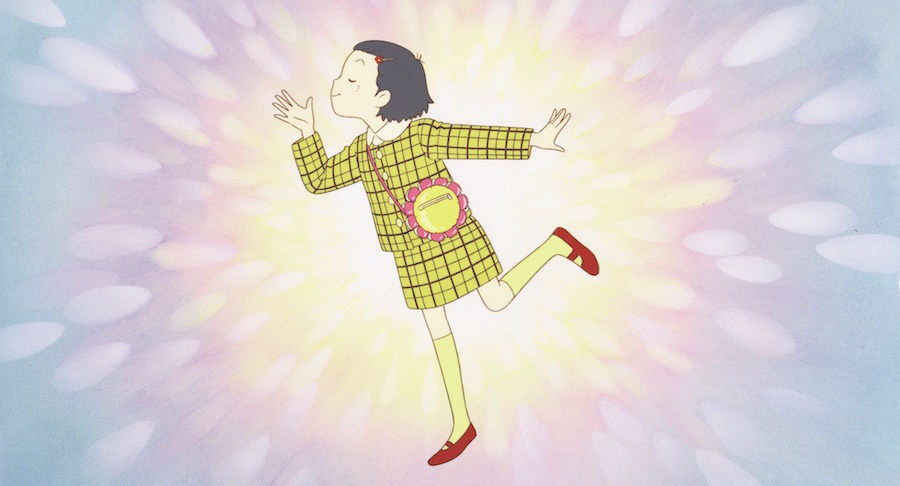‘Only Yesterday’ The beloved Japanese animation house Studio Ghibli shuttered, perhaps for good, in 2014. Luckily, at least for Americans, there’s always been a straggler. Until its release this weekend, the 1991 drama “Only Yesterday” had been their only feature never released in the U.S., not even on home video. The reasons are bizarrely specific; if you must know: Disney, who hungrily purchased their catalog in bulk, took umbrage with a bit about a young girl’s menstruation, and decided to shelve it entirely. RELATED: Review: “Eddie the Eagle” is a deceptively simple inspirational sports movie But “Only Yesterday” has always been a tough sell, even in Japan, where its monster success was seen as a pleasant surprise. Whereas most Ghiblis, most famously those helmed by Hayao Miyazaki, boast spooky but friendly ghosts and giant cat buses and other fantastical creatures, “Only Yesterday” is the rare animated film that’s strictly earthbound. It’s about real people and their very real longings, disappointments and stray bits of happiness. One could easily imagine it as a live-action drama, played with real actors. Then again, it likely wouldn’t have the same serene grace. Adapted from a series of mangas, it bobs and weaves through a young woman’s life. We meet Taeko (voiced in the revival by “The Force Awakens”’ Daisy Ridley) as an adult in 1982, living the life of an urban office monkey. She’s decided to use her vacation time to finally get to a lifelong dream: to head out to the country, soaking in nature and a life lived without permanent distractions. All the while the film dips into her childhood in 1966, when her family rarely if ever traveled, forcing her to spend her summers stuck in town, find enchantment where she could. RELATED: Interview: Michelle Yeoh talks the “Crouching Tiger, Hidden Dragon” sequel The director is Ghibli’s other superstar: Isao Takahata, who helmed beloved titles like “My Neighbors the Yamadas” and the grim, post-apocalyptic “Grave of the Fireflies,” as well as the dreamy “The Tale of the Princess Kaguya,” released here in 2014. His style varies; “Kaguya” is expressionistic, characters drawn with imperfect scribbles, while “Fireflies” is plain and realistic. So too is “Only Yesterday,” where “shots” unfold with no rush to end, where the mundane is fetishized and alive. It’s the kind of film where one of the best scenes finds a fresh pineapple being gently carved, then consumed by family whose members, we gradually see, find it disappointing — not as sweet, they surmise, as the canned variety to which they’re more familiar. That moment, a throwaway in any other film, is one of the keys to unlocking “Only Yesterday”’s quiet power. It knows that life is bittersweet, that things that excite us may prove disappointing, or at least not what we expected. Taeko has idolized the country out of proportion and has to be reminded by a friendly, excitable organic farmer (Dev Patel) that what we think of nature is often a lie — that everywhere we go is tainted by humanity’s hands. Taeko fondly recalls being a schoolgirl, but once she’s flashing back she remembers all the little tragedies and fits of sadness, like the realization that she wasn’t particularly smart or special but crushingly normal. “Maybe we were all in a trance,” she recalls of happier, more optimistic times that led inexorably to an unspectacular, but still rich, adulthood. RELATED: Review: “The Meramid” is that Chinese blockbuster no one told you about There are few big moments and very little drama in “Only Yesterday,” but as it choogs along it gains power and wisdom. Takahata uses his animation to flow in and out of childhood, and occasionally allows the extraordinary to happen. When Taeko experiences her first crush, she casually walks into the sky and soars about. Takahata knows the value of silence, letting certain scenes play out with nothing on the soundtrack. “Only Yesterday” doesn’t need crazy creatures to justify its animation. Reminding us that life is short and often dull, though peppered with little awakenings, will suffice. By staying minor it becomes major.
Director: Isao Takahata
Voices of: Daisy Ridley, Dev Patel
Rating: PG
4 (out of 5) Globes
‘Only Yesterday’ is the great Studio Ghibli film that never made it here

GKids
Follow Matt Prigge on Twitter @mattprigge
















